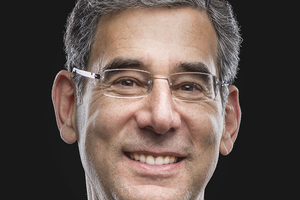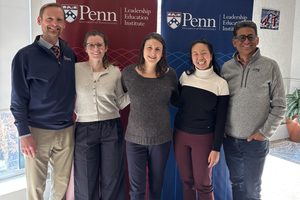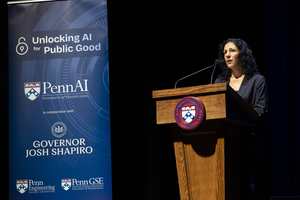Faculty Expert
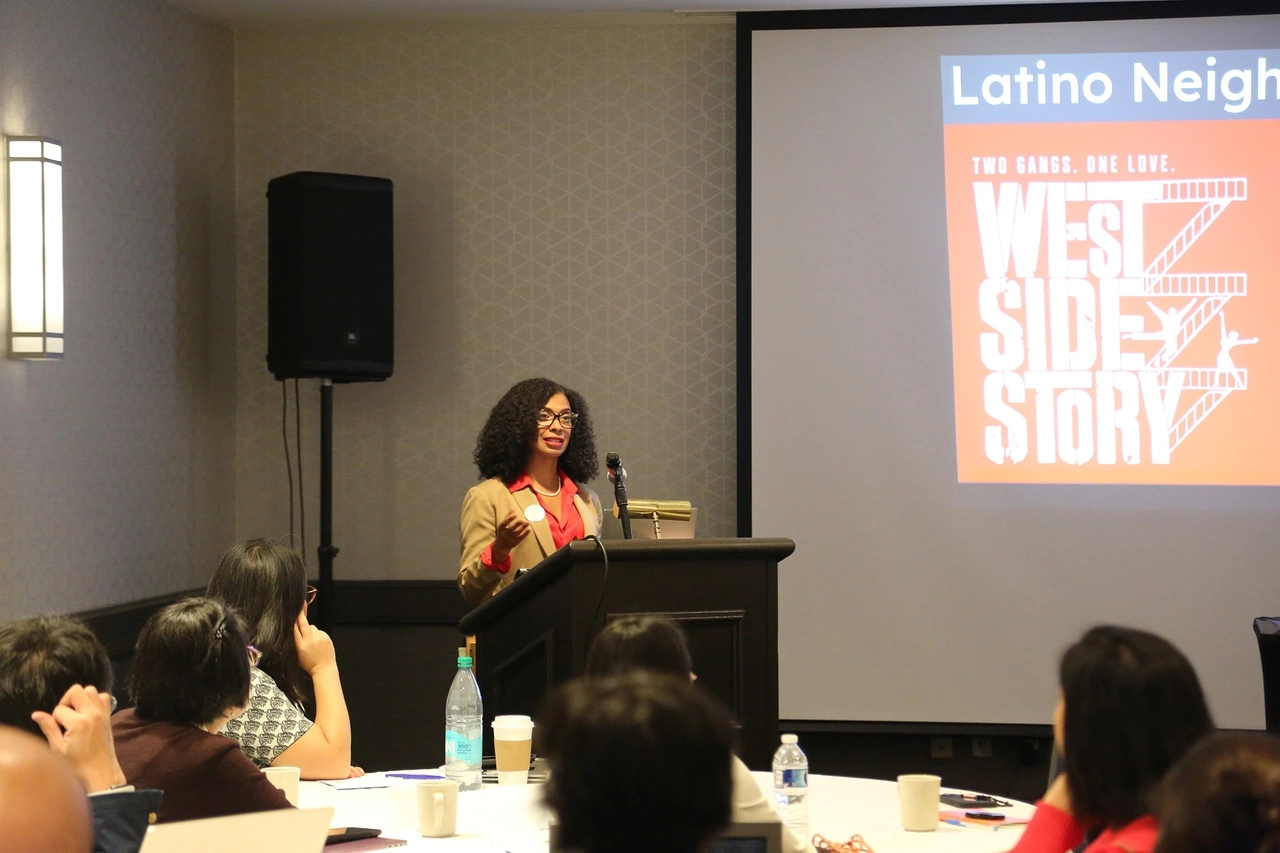
The sixth International Conference on Quantitative Ethnography (ICQE), held in Philadelphia from Nov. 3–7, welcomed scholars from around the globe to explore the art of turning complex data into compelling narratives. Quantitative Ethnography (QE) mixes detailed research with numbers to find connections and patterns in data, helping us understand complex social issues. Penn GSE took a major role in this year’s conference, with faculty and students making impactful contributions to the evolving field.
Penn GSE faculty members, including Amalia Daché, Jaclyn Ocumpaugh, Maciej Pankiewicz, and conference chair Ryan S. Baker, presented research across diverse topics.
For Baker, director of the Penn Center for Learning Analytics, QE represents “an exciting emerging area” that enables deep educational insights with greater efficiency.
“Qualitative research has enabled deep understanding of complex educational phenomena, but it's been very time-consuming, very difficult, and has required a lot of expertise to do. The quantitative ethnography toolkit makes it a lot easier to do deep and rich investigations,” Baker explained.
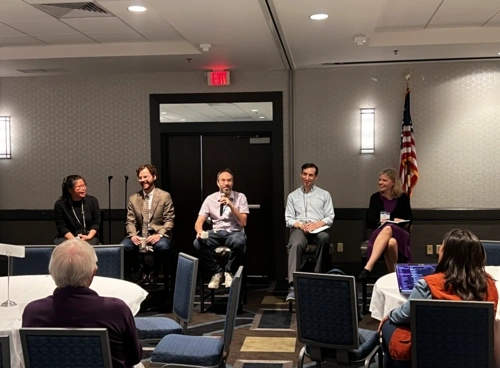
Baker highlighted the Penn Center for Learning Analytics’ contributions to QE, including using large language models to analyze themes, developing predictive models to select students for interviews, and creating visualizations that capture complex relationships. By applying big data methods to QE, Baker noted, the center “improves theoretical understanding in education and leads to better results for students.”
Penn faculty contributions included Daché’s keynote, “Afro-Latin Futurism: Unweaving Magical Realism and the Possibility of Quantitative Ethnography.” Her address showed how QE can honor Afro-Latin cultural contexts, combining storytelling with data visualization to convey complex social realities. “Through QE, I aim to create a narrative that not only reflects but respects the lived experiences of Afro-Latin communities,” Daché noted.
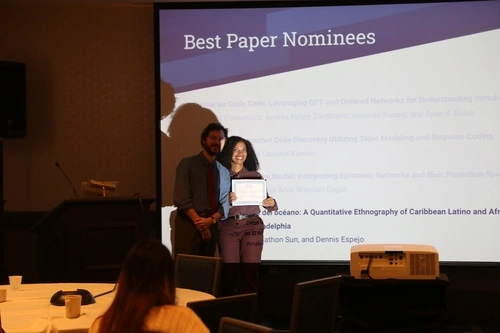
Her work, with Ph.D. student Jonathan Sun and master’s student Dennis Ramón Espejo, won the best paper award for “Como Las Mareas Del Océano: A Quantitative Ethnography of Caribbean Latino and Afro-Latino Identity and Education in El Norte De Philadelphia.” This research highlights the educational and identity experiences of Caribbean and Afro-Latino populations in North Philadelphia, embodying Penn’s commitment to community-engaged scholarship.
Amanda Barany, Penn GSE instructor and conference co-chair, emphasized Penn’s interdisciplinary approach, noting how the university’s scholars bring insights from fields like learning analytics and community-based research.
“Penn scholars bring an incredible diversity of perspectives to this field, applying QE to unique contexts, which fosters deeper community engagement and sparks important conversations,” she said.
Students from Penn GSE actively participated in all aspects of the conference, from presenting research to volunteering, gaining valuable experience. Barany’s QE course encourages students to work on projects that resonate personally, helping them build a foundation for future research.
“I hope this conference serves as a starting point for students — an invaluable first step in their academic journey within a community that supports and values their contributions,” Barany said.
Reflecting on the impact of having ICQE in Philadelphia, Baker added, “It’s great to have this conference in Philadelphia, to give our scholars and students the ability to learn from the world’s top scholars in this area.” As innovations like transmodal analysis emerge, Penn’s scholars and students are well-positioned to shape the future of quantitative ethnography, refining skills, deepening connections, and exploring new directions in data-driven storytelling.
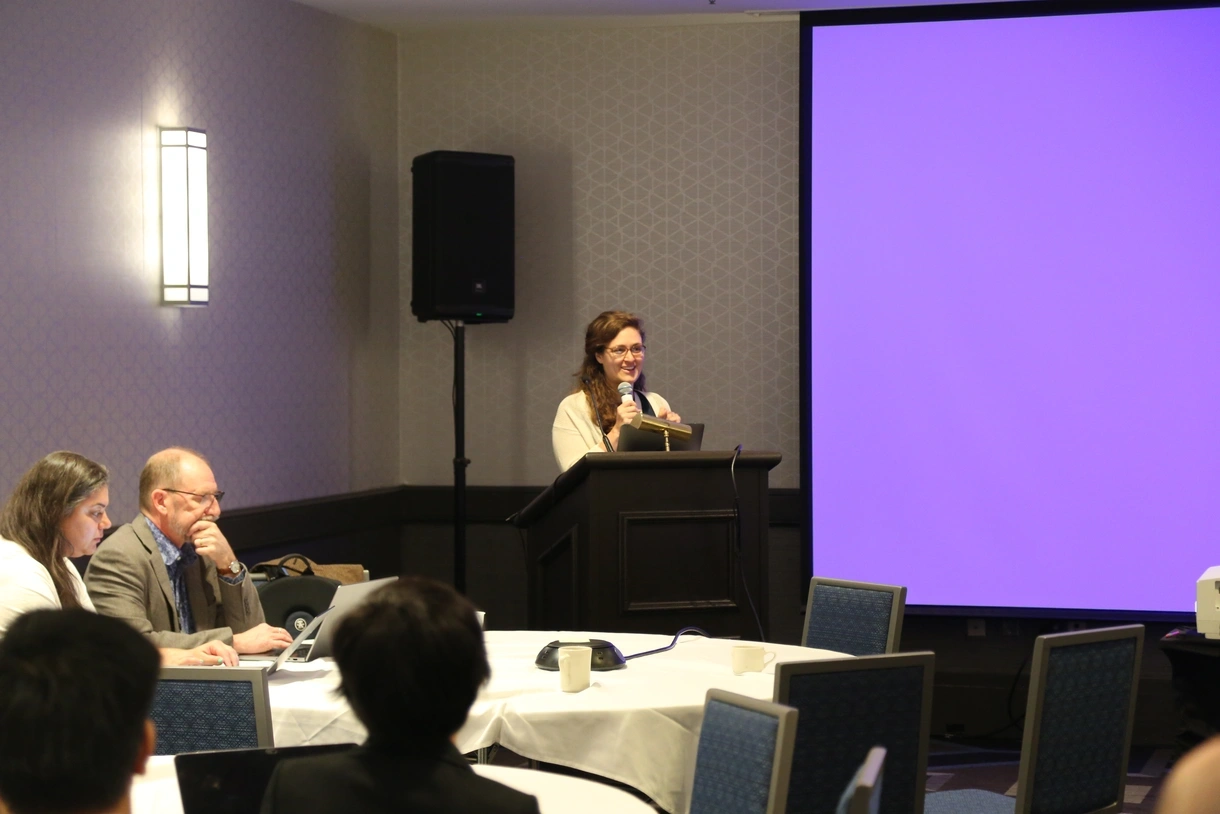
Media Inquiries
Penn GSE Communications is here to help reporters connect with the education experts they need.



